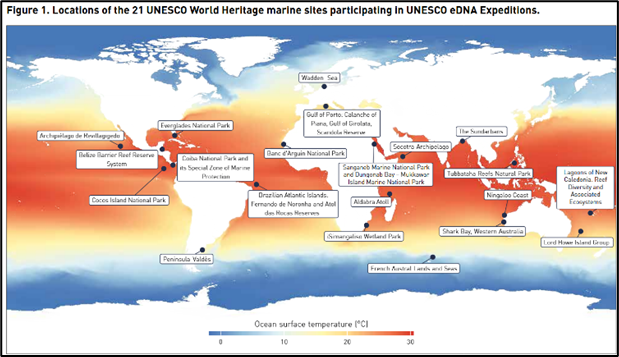PREVIOUS
Safeguard Ocean Life – UNESCO
December 21 , 2024
12 hrs 0 min
17
0
- UNESCO released a report titled ‘Engaging Communities to Safeguard Ocean Life’ based on eDNA expeditions.
- UNESCO’s marine biodiversity mapping initiative has used environmental DNA (eDNA) sampling to identify nearly 4,500 species across 21 World Heritage sites.
- Over 70% of these sites are threatened by climate change and hosting about 35% of threatened marine species.
- Researchers predict that up to all fish species in these areas may surpass their thermal tolerance limits under the most severe climate change scenario.
- This scenario, known as SSP 8.5 or the ‘business as usual’ pathway, projects a global temperature rise of 4.4°C by the end of the century.

Leave a Reply
Your Comment is awaiting moderation.


